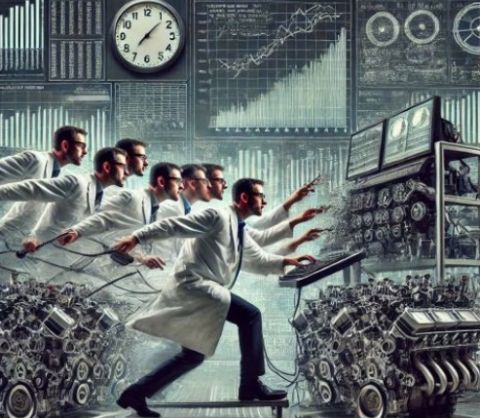Dieselgate: The Complex Ethics Behind Volkswagen's Wrong Turn

In 2017, Volkswagen faced one of the biggest corporate scandals of the decade. Known as Dieselgate, the company confessed to using software to cheat emissions tests in hundreds of thousands of vehicles. The scandal had far-reaching consequences, from billions of dollars in fines to a shattered public image. But beyond the legal and ethical violations, Dieselgate also highlights a fundamental tension in engineering—balancing innovation, performance, and regulation.
What happens when the desire to push technological boundaries collides with nearly impossible standards? Let’s explore the story behind Dieselgate, and why understanding the complexities engineers face matters as much as the fallout itself.
The Story Behind Dieselgate: What Really Happened?
In 2017, the world was shocked when Volkswagen admitted to installing “defeat devices” in their diesel vehicles to cheat emissions tests. The company had rigged the software in 590,000 U.S. cars and 11 million worldwide, making it appear that their vehicles met emissions standards when, in reality, they did not.
Volkswagen’s actions led to criminal charges, billions in fines ($2.8 billion in criminal penalties and $14.7 billion in settlements), and long-lasting damage to its brand. The company pleaded guilty to fraud and Clean Air Act violations, marking one of the most significant corporate scandals in automotive history.
But was this just about corporate greed? Or was there a more nuanced struggle behind the scenes?
Engineering at the Crossroads: The Struggle Between Emissions and Performance
To understand the full scope of Dieselgate, we must look at the engineering dilemma VW’s team faced. At its core, this scandal wasn’t just about saving money; it was about a technical struggle. Engineers had to balance emissions standards with performance, fuel efficiency, and customer expectations.
Diesel engines, known for their fuel economy and power, emit more nitrogen oxides (NOx) than gasoline engines. Reducing NOx emissions while maintaining performance and fuel efficiency is a tough challenge. The defeat devices were VW’s unethical solution to this problem.
While this decision was clearly wrong, it points to a deeper issue in automotive design—the difficulty of meeting stringent emissions standards without sacrificing performance.
The Dilemma Engineers Face: A Deeper Dive into Calibration
To understand the full scope of Dieselgate, we must look at the engineering dilemma VW’s team faced. At its core, this scandal wasn’t just about saving money; it was about a technical struggle. Engineers had to balance emissions standards with performance, fuel efficiency, and customer expectations.
Diesel engines, known for their fuel economy and power, emit more nitrogen oxides (NOx) than gasoline engines. Reducing NOx emissions while maintaining performance and fuel efficiency is a tough challenge. The defeat devices were VW’s unethical solution to this problem.
While this decision was clearly wrong, it points to a deeper issue in automotive design—the difficulty of meeting stringent emissions standards without sacrificing performance.
The Human Element: Ethical Missteps and Pressures
While Volkswagen’s actions were unequivocally wrong, the engineers behind the defeat devices were likely facing immense pressure. Balancing performance, emissions, and regulations is an everyday challenge in engineering. VW’s team, like many engineers, likely struggled with the compromises they had to make.
This doesn’t excuse their actions, but it sheds light on the ethical challenges that engineers in every industry encounter. Good design and sound engineering often involve compromise, but it should never lead to breaking the law. The public rarely sees these tough choices, but understanding them helps us grasp the complexity behind the scenes.
Conclusion: What Can We Learn?
Volkswagen made a grave mistake, one that cost them dearly. However, Dieselgate offers a deeper lesson about the pressures engineers face when innovation meets regulation. While the defeat devices were illegal, they highlight how engineers can feel cornered by impossible demands, leading to poor ethical decisions.
The key takeaway? It’s not just about the technicalities—it’s about creating a system where innovation, ethics, and regulations can coexist without sacrificing one for the other.
So, as we reflect on Dieselgate, we must ask ourselves: How can we better support innovation and regulation to avoid these ethical pitfalls in the future?
